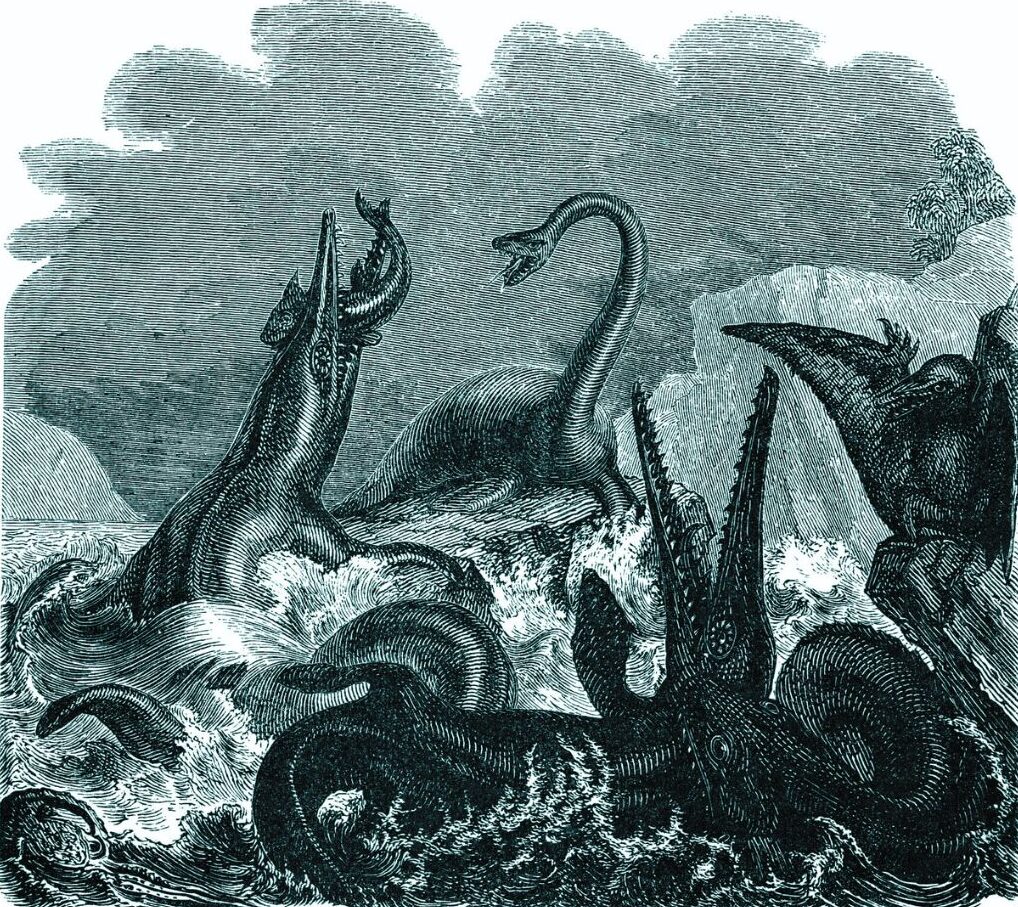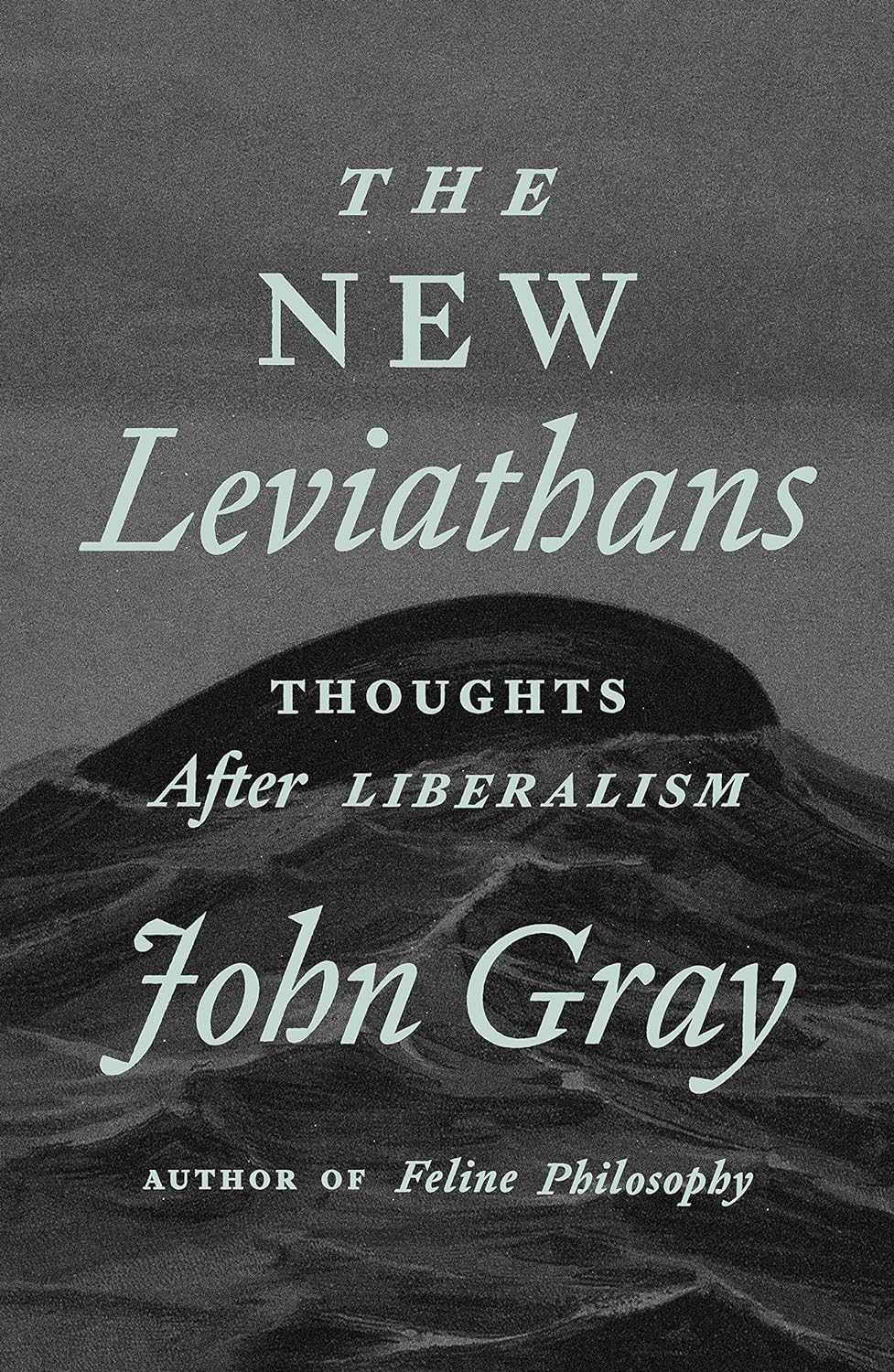John Gray, who taught political theory at Oxford and the London School of Economics for many decades, is one of the most notable writers on public affairs in Britain. He has often changed his political position, but underlying these changes there is a constant stance toward the world that many conservatives will find attractive (though some conservatives will not). Gray sees the world as governed by chance, indifferent to our hopes and desires. The potential for disaster is always present and cannot be removed; efforts radically to alter human beings or the natural world will inevitably fail. But though we cannot make the world much better than it is by its nature, we can make things much worse than they need to be, precisely by engaging in a futile effort to remodel the world according to a utopian fantasy.
In his new book The New Leviathans, Gray summarizes his outlook in this way:
The real Leviathan is the human animal. . . . Nothing is more real than the nothingness within human beings. Alone among living creatures, they know their lives are bounded by death. Awareness of their mortality impels them to seek immortality in ideas. Killing for the sake of words gives meaning to their lives. In this they exercise the privilege of absurdity, which cannot be renounced.
There is another way of exercising this privilege. The nothingness within may impel action in the service of life. . . . If we go on, it is because we cannot do otherwise. It is life that pulls us on, against the tide, life that steers us into the storm.
In his battle against utopian dreamers, Gray has been influenced by Thomas Hobbes, and apt quotations from Hobbes begin each chapter. Hobbes was a penetrating student of the power of false ideas to corrupt sound judgment, and he blamed passionate commitments to absurd religious beliefs for the English Civil War. To prevent such outbreaks, a strong state that kept religious sects in check was needed, but the “goals of Hobbes’s Leviathan were strictly limited. Beyond securing its subjects against one another and external enemies, it had no remit.”
The contemporary state, though often less absolute in its powers than Leviathan, attempts to do more than this, and this has often led to disaster:
The purposes of the new Leviathans are more far-reaching. In a time when the future seems profoundly uncertain, they aim to secure meaning in life for their subjects. Like the totalitarian regimes of the twentieth century, the new regimes are engineers of souls.
The upshot has been the return of the state of nature in artificial forms. Even as they promise safety, the new regimes foster insecurity. . . . Within Western society, rival groups seek to capture the power of the state in a new war of all against all between self-defined collective entities. There is an unrelenting struggle for the control of thought and language. Enclaves of freedom persist, but a liberal situation based on the practice of tolerance has passed into history.
In schools and universities, education inculcates conformity with the ruling progressive ideology. The arts are judged by whether they serve approved political goals. Dissidents from orthodoxies on race, gender and empire find their careers terminated and their public lives erased.
It should not be thought that Gray wishes to return to the classical liberal views he held in the late 1970s and early 1980s. Quite to the contrary, classical liberalism for him is no better than modern liberalism in its belief that human history has a goal, a belief that Gray with his aleatory stance toward the world is bound to reject. Friedrich Hayek, “one of the most influential late-twentieth-century ideologues, believed that market capitalism spread through an evolutionary process. The most productive system was the free market, which would win out in Darwinian fashion over all others.” In arguing in this way, Hayek, and even more so Francis Fukuyama, “departs from the most important discovery in modern science. As understood by Charles Darwin, evolution has no destination. Humankind is not the endpoint of natural selection, which may well result in its extinction.”
It must be said that this is an extraordinarily bad argument. The claim that an economic system will supplant others in competition does not imply that biological evolution has a goal or that human beings will never die out. If someone argues that very tall basketball players have a competitive advantage over short players, he is not refuted by the likelihood that at some future time, basketball won’t be played anymore.
More generally, Gray’s bleak outlook on the world is just that—an outlook or stance. He does not deploy arguments to show that religious believers who think that God guides history or that thinkers who appeal to philosophical arguments to support schemes of social organization are mistaken. If, like Robert Nozick and Murray Rothbard, you think that people have natural rights or, for that matter, you are a Hegelian, Gray has said nothing to refute you.
The great value of Gray’s book lies elsewhere. He has a striking ability to explore aspects of history that most other writers neglect. These explorations and insights often evince his profound knowledge of Russian history, though they are by no means limited to that country.
As you would expect, he is a fierce opponent of Soviet communism, but he stresses something about it that will surprise many readers:
A movement whose members described themselves as God-builders appeared in the early twentieth century as a heterodox faction of the Bolsheviks and their sympathizers, including the Commissar of Enlightenment, Anatoly Lunacharsky . . . and the novelist Maxim Gorky. . . . They were inspired by the Orthodox philosopher Nikolai Federov . . . who believed that technology would enable the resurrection of every human being who had ever lived, and, in Lunacharsky’s case, by Nietzsche’s idea of the Übermensch, a higher type of human that could be willed into being.
This movement is a perfect example of what Gray warns us about: utopian dreaming that leads to atrocities in futile efforts to bring it into being. Dostoevsky subjected such dreaming to decisive criticism:
As Dostoevsky saw it, Russian atheism was a flight from a godless world. Rather than learning how to live without God, it aimed to build a new God through the divinization of the human species. . . . Dostoevsky foresaw that [the revolutionary Sergei] Nechaev’s pursuit of complete freedom would lead to absolute tyranny. . . . Unlimited freedom means turning oneself into a god. . . . The history of communism vindicated Dostoevsky’s prophecies. Tens of millions of human beings died in an attempt to create a new humanity. The communist experiment illustrates a Hobbesian truth on which all such projects founder. Human beings are material and perishable. In extreme situations, the words they use to make themselves into persons no longer work.
I shall confine myself to one further insight about Soviet communism that Gray presents. When we think of Soviet crimes, the Gulag comes to mind; but, Gray tells us, there was worse:
Contrary to a popular Russian view, it was not Russia that suffered most from communism. The Mongolian People’s Republic was a laboratory in the Soviet experiment in eradicating religion and collectivizing agriculture. Buddhist lamas were killed in massive numbers and nomadic herders deprived of their animals. By the spring of 1932, the population of Mongolia had fallen by a third. Nothing on this scale happened in Soviet Russia, or in Mao’s China.
Gray has an affinity for those with unusual outlooks on the world, whose startling though often irrational insights make us see the world in new ways, even if we reject these visions as false—which we should, though I am not at all sure Gray would agree with me. The nineteenth-century Russian philosopher Konstantin Leontiev, as an example, “believed liberalism would evolve into a version of feudalism, but it was a prospect he welcomed. He proposed that the tsarist system should impose an autocratic socialism, which would be the new feudalism of which he dreamt. He was serious in these ideas, though perhaps not entirely. He played with ideas . . . in order to contemplate their beauty.”
It is clear that John Gray is among these unusual and insightful thinkers, and even those of us who do not share his denigration of reason’s capacity to understand the world can learn much from him.
















